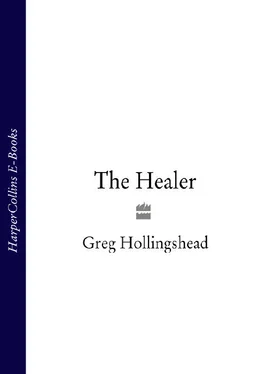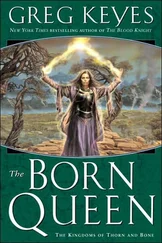Wakelin sat back, disarmed. It was a long time since he had been with anyone like this. Childhood. This was innocence. Candour, no strings. A source of alarm. How could he not pity it? Not seek, despite himself, in juicy small increments, to wisen it up? Not sooner or later with one half-unwitting word or gesture finish it off? How could he trust himself?
He asked her, “So will you do this again?”
“No.”
“Your decision has nothing to do with me, right?” He grinned. “I mean, this isn’t personal?”
No expression marked the honest beauty of her face. No hostility, no amusement, no tightening of the skin around the eyes, nothing. Only watching.
“Tell me,” Wakelin said, leaning forward with great calm, scrambling to keep this going. “How do you know Orest?”
A flicker. Just that. A shadow. “My father, he used to bring me up here in the summers, when I was little. We’d camp. Down the cut a ways— Look, we have to go.”
“Just you and him?”
She nodded. Eyes downcast. Making no move to leave, and, like her, Wakelin sat watching her weigh and turn the truck keys in her fingers. And he was thinking, Jesus Christ, I can’t even tell if what I’m feeling right now is compassion or desire. Who’s supposed to be the emotional illiterate at this table, again?
Without raising her eyes, she said, “There’s Wakelins out around Avery Lake.”
“Bow legs and bad hearts?”
Quickly she glanced up.
“They’ll be the impostors. Awful thorns in our sides.”
She looked away.
And then it was more brutal of him still, but the waitress was standing right there, looking at him. He ordered pumpkin pie and coffee. “Two seconds, I promise,” he told Caroline Troyer. “I just can’t seem to stay awake today.” He let his lids droop and hated himself all over again from the beginning.
When his order came he paused with a forkful of pie and said, “So what do you want your career to be?”
“I don’t know.”
“Did you ever think about joining the Church?”
He might have pricked her with a pin. “Why would I do that?”
“Only a suggestion. Exercise your faith—”
“What faith?”
“You don’t have to have faith—”
“Why would I want to have faith?”
“Beats despair?”
She was sliding along her bench to leave.
“Listen,” Wakelin said. “I was a really nosy kid. I tried hard to keep it clean, but—”
She was halfway to the door.
As he put down money to cover the bill, Wakelin thought, A faith healer hostile to faith. Hmm.
Or was that former faith healer?
Christ, I don’t have a thing here.
The rest of the afternoon they spent lost on gravel roads among hill farms. A quality in that region of confinement and reduction in scale. Limited horizons. The soil thin and stony. Sourest of podzol, a smear of humus. Frost-free days few in number. Land not intended, not in any millennium of this climate era, to be farmed. Goats and chickens and bug-bitten kids with bare feet standing at the bottoms of lanes, kids who didn’t see many trucks they didn’t know, who would pause amidst their play to watch, from first sighting to last, this latest unfamiliar vehicle pass, and as Wakelin waved and the kids just stared and continued staring even as the dust-roll enfolded them, two words kept coming to his mind: Isolation. Suffering. On many stretches, poplars dustily crowded the road like elephantine weeds. A land of escarps and gravelish moraine. Bulrush swamp. Fields of chicory the colour of blue sky. Signs bad or non-existent, they kept getting lost. They would find themselves on roads that turned out to be private lanes or that ended at checkerboards now signposts for dumped garbage or that petered out to tractor ruts across rocky till.
At a stream that passed under the road through an exposed and grader-battered culvert with bedspring grates, Caroline Troyer pulled over and took a crushed litre milk carton from under the seat and walked down to the water reshaping it. Wakelin got out to stretch his legs and watch her squat by the water to fill this container, her skirt bunched between her knees, her hair swung forward hiding the pale sombreness of her face, and his spirit travelled down the embankment to embrace her in her lowly task. The blackflies at this spot still thought it was May. He tried to have the hood popped all ready for her, but he couldn’t figure out how. She returned and did it herself amidst a furnace blast of heat off the engine. She balanced the hood on its slender rod, then used a rag to loosen the rad cap—“Um, please be really, really careful doing that,” said Wakelin, who had stepped back—and refilled the carton by means of two more trips to the stream.
It was almost six by the time they found the place, on a stretch where the ditch-grass and aspens were powdered white from the road, a stately red-brick farmhouse with a wraparound porch. The day had diminished to a silent white haze of late-day heat, but inside, where grain sheaves in white-plaster relief bordered the high creamy ceilings and the burnished linoleum shone in the slanting light, the air was cool and commotionous. The whole place smelled of baking bread, and Wakelin, as he stood alongside Caroline Troyer in the front hall before an osteoporosal old woman with upraised eyes, was aware of strange stirrings, ghostly and expansive rustlings, as of bread rising in remote corners. A man with a nine-inch lift on his right boot dragged it into the front hall and spoke passionately concerning the R20 insulation he had had installed the previous spring at great expense, and yet a seventh as much had been saved already on heating fuel this winter past. As the man spoke, behind him in a kind of sunroom Wakelin could see beings moving like outsized children or sleepwalkers, and overhead he could hear as well the footfalls of uncertain dreamers. The whole house in a movement of habitation. The man dragged away his elevator boot, and the old woman explained that though the farm had been their life, leaving it would be nothing compared to losing the children, who would be scattered and lost, even one to another.
“Why do you have to sell?” Caroline Troyer asked the woman, and Wakelin looked at her, though he had been wondering exactly the same thing.
The woman sighed and said because they had no money left, and with the latest round of cuts to foster care—
She led them to that sunroom, where the man had returned to reading a story to the six or seven hydrocephalics gathered around him, possibly listening, possibly not, a few others musing at a low table spread with puzzles and books. When the woman entered with visitors, the children crowded forward in shy excitement.
Back at the truck Wakelin exclaimed, “I’ll take it! And the nice old couple and the kids, too!”
“It’s too cheap,” Caroline said. “It should have sold.”
“After two years of looking!” cried Wakelin, overlooking the year he had put the whole thing aside as a bad idea. He was ready to buy. Was this or was this not textbook serendipity? “I can’t believe my luck! I’ll be the new landed gentry!”
“It’s too cheap,” Caroline said again.
“Maybe the kids spook people,” Wakelin suggested hopefully.
And then she turned the other way out the drive and it was right there, a gravel pit so vast the trucks at the bottom looked like Dinky Toys.
“The listing should have said something,” Caroline said.
“Listen,” Wakelin told her. “People can adapt to anything. They’ll walk around with an open sore for years. Before you know it, you’re dressing it in your sleep. Besides, a pit is more an absence than an actual—”
Here a gravel truck roared by and the whole world turned white.
Читать дальше











